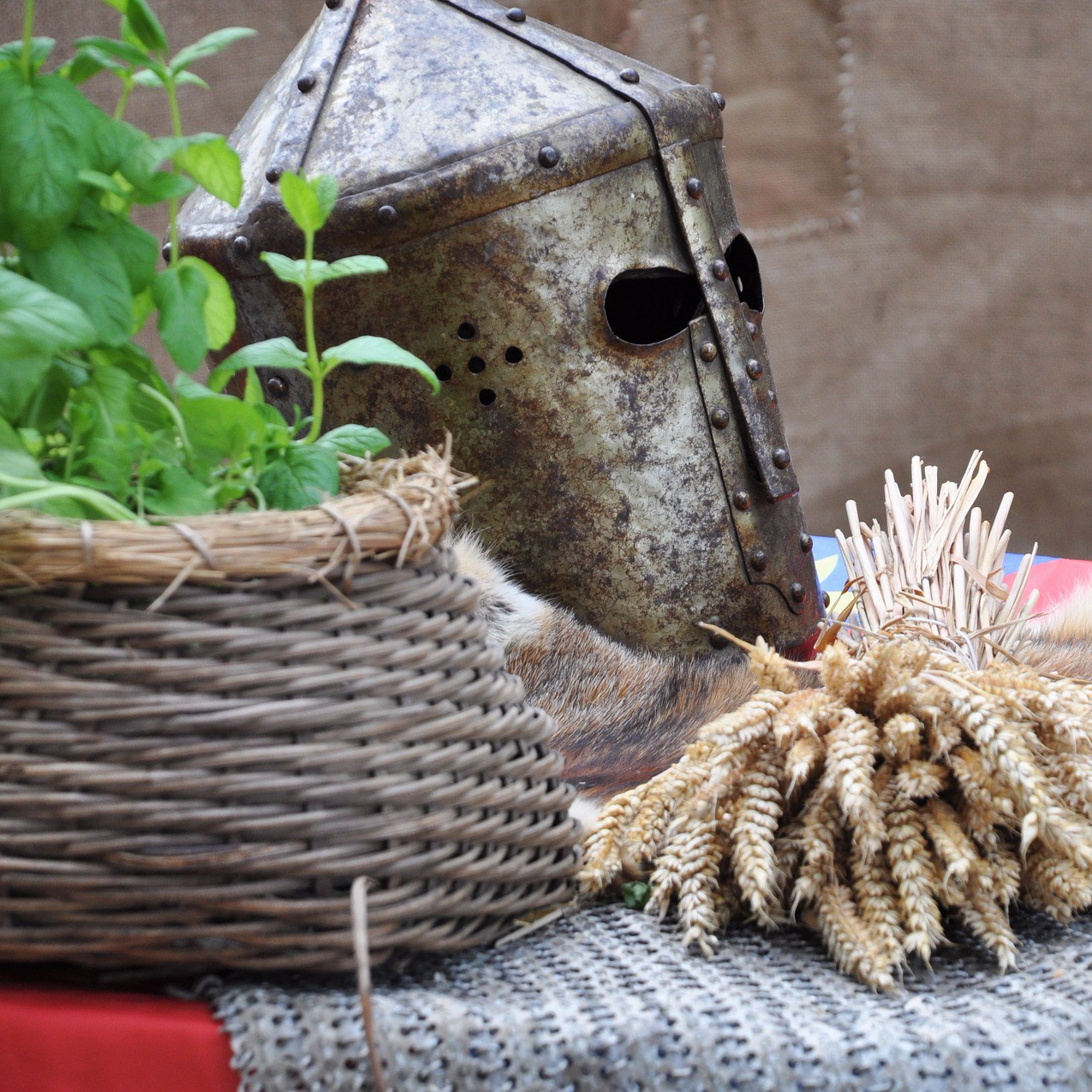In England’s patron saint I considered whether Saint George was the best patron saint for England and in many ways I could make a similar argument for Scotland. Like Saint George, Saint Andrew never came to Scotland and like England, Scotland has other options – Saint Columba and Saint Margaret are two examples that immediately spring to mind. Yet somehow, Saint Andrew feels like he belongs to Scotland. Perhaps because his association originates from a time when the nation of Scotland was in its gestation.
There are a number of legends, but the most popular one is that the Picts and the Scots had come together to raid the Angles, but were chased away, finally having to face their foes at Athelstaneford. When all seemed hopeless Saint Andrew appeared to the Pict king, Angus, promising him victory and when the Picts and the Scots faced the Angles the next day the cross of Saint Andrew appeared in the sky uniting the two groups in their victory. The traditional date for this battle is in the 830s and among the combatants was said to be the Scot king of Dal Riata, Eochaidh the Venomous and his more famous grandson Cinaed (Kenneth) mac Alpin.
I described this battle in flashback in Kenneth’s Queen from the point of view of Cinaed’s father-in-law. Later in the book Cinaed too mentions it and it is clear that this battle has caused the far-sighted young man to realise how much more could be achieved if the Picts and Scots stopped squabbling with each other and instead united as they did on the day the cross of Saint Andrew floated above them in the sky. Like so much of Scottish history at that time it is hard to know where the legends end and the history begins. But if Cinaed was there, what was it like for him?
 Battle of Athalstaneford – Cinaed’s story
Battle of Athalstaneford – Cinaed’s story 
The chase had gone on all day. None of them could understand it. Their victory should have been assured, but the Angles had mustered more men than they believed possible to mount a vicious fight back. The Picts had blamed the Gaels. If King Eochaidh of Dal Riata had not attacked that last settlement, they could have returned victorious. The Gaels had blamed the Picts. If Oengus, Rex Pictorum, had not laden his men with so much plunder, they might have moved faster.
But whoever was to blame it had ended here at the stone ford, surrounded by the Angle forces and outnumbered many times over.
Eochaidh’s three grandsons Cinaed, Graunt and Domnall were firm in blaming the Picts for their plight as they holed up in an abbey by the ford.
“Be silent, lads,” Cinaed’s father Alpin snapped. “This does not help us now.”
“What will help us?” Cinaed asked. “We are trapped. Tomorrow we die.”
“We may be able to defend this abbey,” Alpin said.
Graunt shook his head, knowing his uncle was just trying to put heart into them. “This abbey was not built for defence.”
“We should attack, Father,” Domnall put in. “If we die, at least we die in a fight not like rats in a trap.”
“That is what King Oengus has said,” Alpin replied. “But your grandfather is not so sure. He thinks defending the abbey may give us a chance.”
Normally Cinaed and Graunt would have teased Domnall for siding with the Picts, but that night they had no heart for it. They ate a simple meal, wrapped themselves in their cloaks and tried to sleep.
Next morning the three awoke early to a fine day. It seemed wrong that such a glorious dawn was heralding the day they would die. They stood close to where Eochaidh and Alpin were gathering the Gael troops.
“We must try to stay together in the fight,” Domnall said to the others.
“Agreed,” said Cinaed. “If I die this day, at least I die with my brothers by my side.”
Graunt embraced his two cousins. They had been raised together and were brothers to him.
“Eochaidh! Eochaidh!” came an excited voice, as Oengus burst onto the Gael lines. “We must attack. I have had a sign. The blessed Saint Andrew appeared in my dreams. He has promised us a victory if we all attack.”
“What nonsense,” snorted Alpin. “Save those tales for the gullible young lads like those three.” He gestured at Cinaed. “It is wasted on us.”
“No Alpin, look!” Eochaidh cried, pointing to the sky.
The sky was of the clearest blue, cloudless except for one. And that one had made a perfect cross, startlingly white against the blue background. Its arms stretched over both Gaels and Picts alike. “It’s the sign,” Oengus cried.
“Attack!” Eochaidh and Oengus shouted together.
There was no time for the lines to form. Picts and Gaels charged together towards the advancing Angle troops. Cinaed quickly lost Domnall and Graunt. He found himself next to a Pict man, considerably older than himself. The fighting was as fierce as they had expected and many men fell. But although greatly outnumbered, they slowly drove back the Angle forces. Cinaed received several cuts to his arm, but somehow escaped serious injury. So intent was he on fighting, that he had not even realised the Angles had turned.
“You can stop now, lad,” the Pict man said. “The Angles are finished. See them run!”
Cinaed removed his helmet, a grin of pride spreading across his face. The Pict man was a stranger, but they embraced as if they were old friends.
“I am Lord Causantin,” the man said. “Leader of one of the Pict royal houses. You are a fine warrior. I do not know when I have seen finer.”
“I am Cinaed Mac Alpin. It was an honour to fight alongside you and your people. It seems we do better when we stand together.”
“So you are Alpin’s son. The ties between our people should be strengthened. Tell me, Cinaed, are you wed yet? I have a daughter.”
 To find out the implications of this marriage, both for the couple and for Scotland, Kenneth’s Queen is available on Amazon
To find out the implications of this marriage, both for the couple and for Scotland, Kenneth’s Queen is available on Amazon


Reblogged this on Dark Age Voices and commented:
Celebrating St Andrew’s Day again!
LikeLike